|
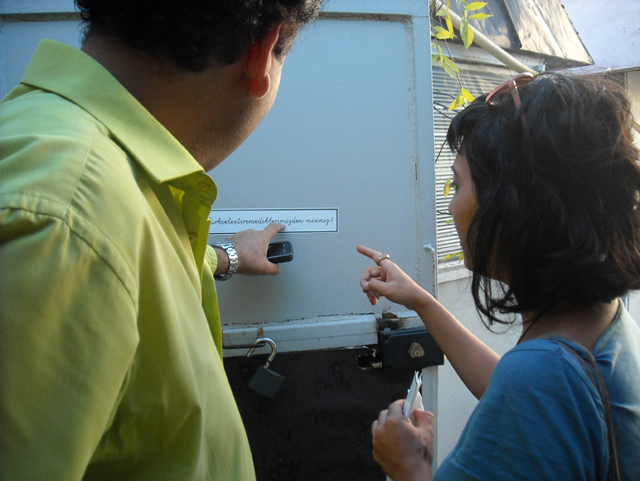
Türkçelestiremediklerimizden misiniz?
Stickerserie im öffentlichen Raum
1. Auflage: 500 Stück
Istanbul 2010
Türkçeleştiremediklerimizden misiniz? is a word creation derived from Çekoslavakyalılaştıramadıklarımızdamısınız, which is said to be the longest word in word in Turkish language. It is commonly used as a children´s game and refers to Czechoslavakia, a national state that existed until 1992. As language as an instrument of power has recently become a sensitive political issue in Turkey again, I decided to repeat the game, but the other way around. I placed the stickers with this word creation in different public areas in Istanbul and invited others to join in this action. They are at the same time a provocation and invitation for a conversation about language and the way we use it to express and define ourselves. Stickering them around the IMÇ, the İstanbul Manifaturacılar Çarşıs/ Istanbul Textile Traders' Market for example immediately triggered a discussion with shopkeepers and passers by in which I learned a lot about people´s experience with language as a power defining spaces of inclusion and exclusion in society.
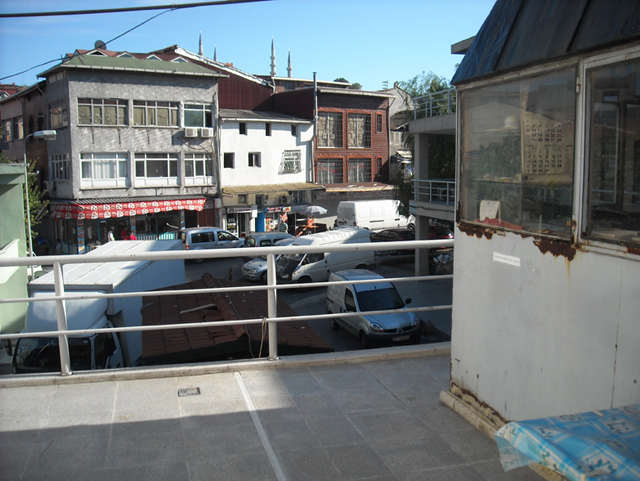
Türkçelestiremediklerimizden misiniz?
What does this word mean in English?
Are you the one that we can't translate ( or make to be ) Turkish? The question refers more to a person than to an object; plural and singular.
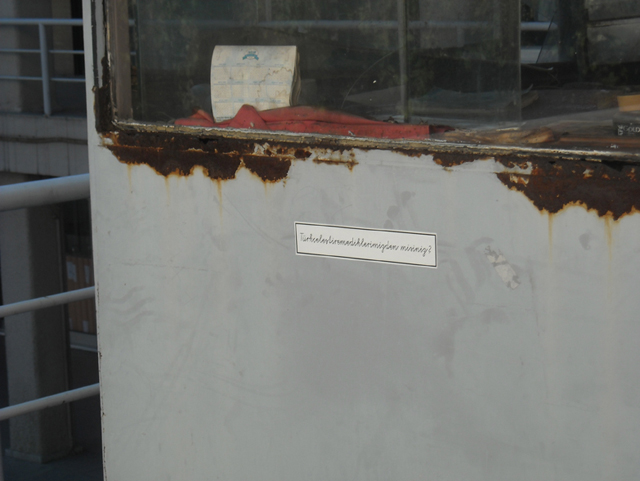
What does it mean to you?
I think this is a result of the changing meanings of the words in Turkish language. I mean, the Turkish language is not the original language. In 1929 in Turkey the alphabet was changed. When the language was changed, we were then faced with an ignorant society. A literate all of a sudden became an ignorant.
The Turkish society has been trying to adapt to these changes for the last 80 years. After the language was changed, the words in the Turkish language developed in every direction according to people´s point of view. I mean there are different dialects. Every region has its own dialects. Every region attributes different meanings to words. (...)
The language is common but everybody is interpreting it differently. If you use this sentence here for example or if you go to another region they will interpret it differently. In my eyes it tells that. Turkish is one but its being used differently everywhere. So, in my eyes, people could not totally adapt to Turkish.
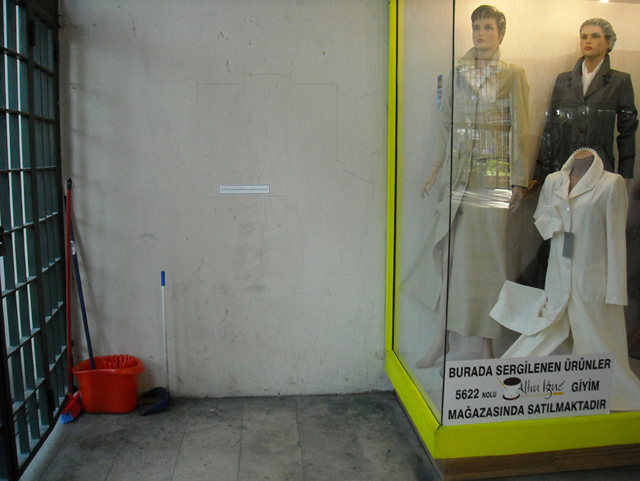
May I say something?
For example, if you are you Laz or if you are you Kurdish or if you are Circassian, it makes a difference.
I think it can also mean that.
It could also mean, you are trying to speak it properly but could not, you are still learning the language properly. Can you still be called Turkish then?
But look, how this society has always considered people who speak Turkish like Turkish to be different
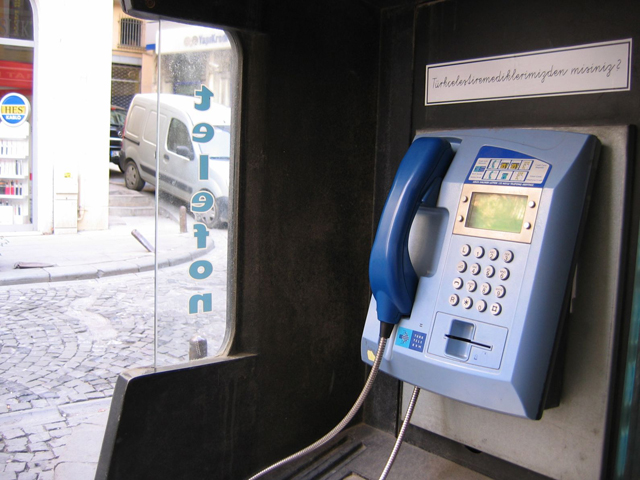
Istanbul, 2010
Stickers in different public places
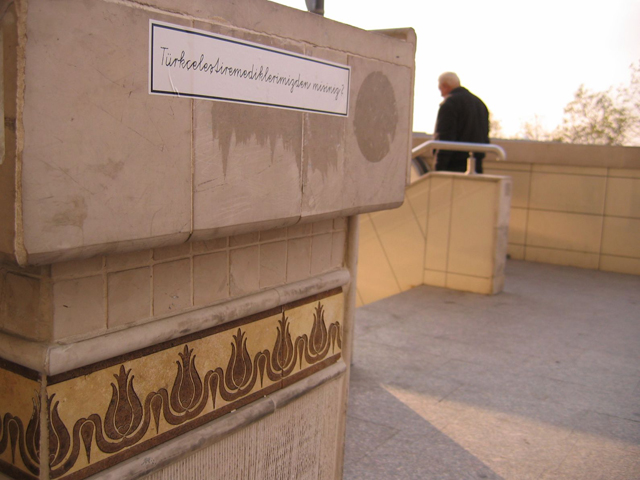
Istanbul, 2010
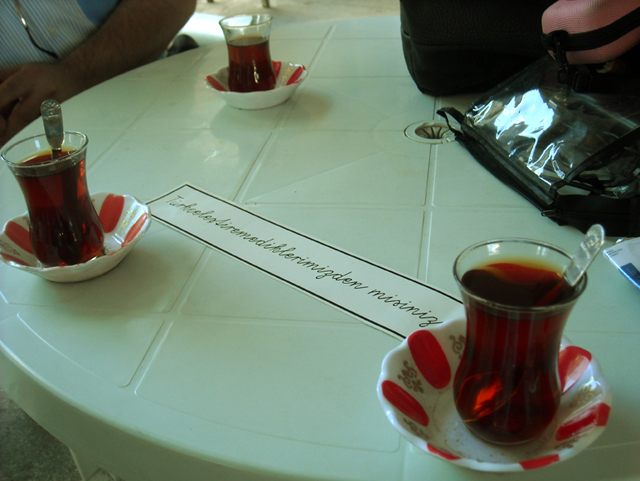
|